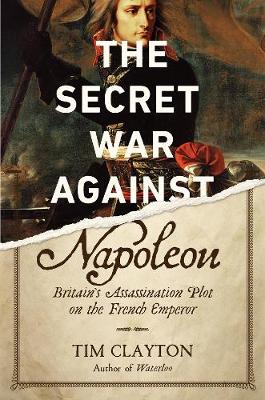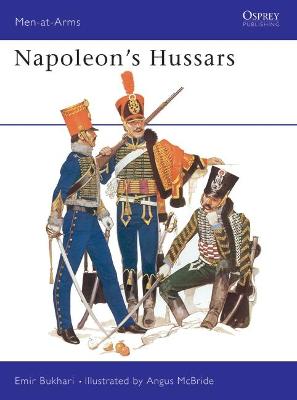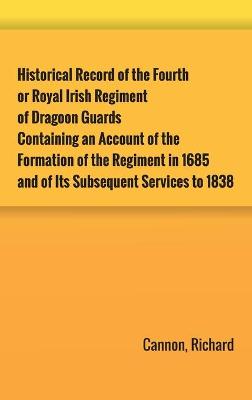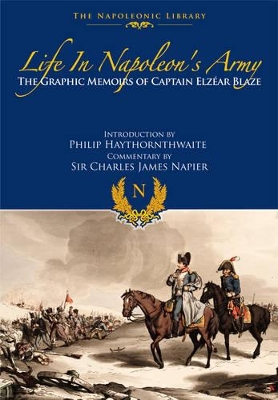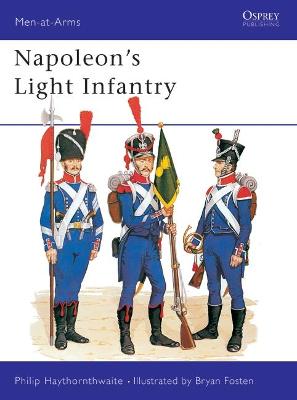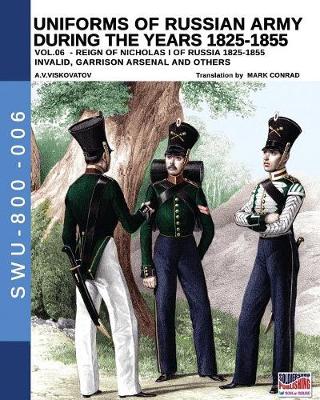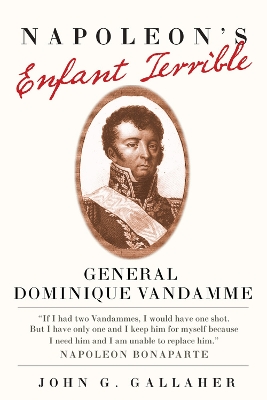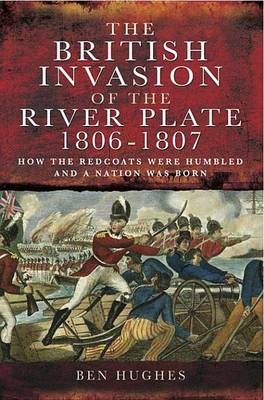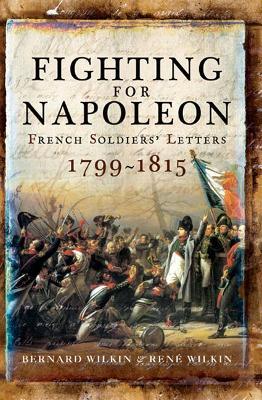Intelligence was just as important in the Napoleonic Wars as it is today. Then there was only one way of obtaining it - by spies and informers. The Author uses first hand accounts of three of Wellington's most daring and successful Intelligence Officers. The three men, all of Scottish descent, were very different in character. One was killed in action and another taken prisoner and after narrowly avoiding summary execution made a dramatic escape. There is a romantic angle too. Their stories ski...
'Unprecedented new information for historians.' - The Guardian 'An extraordinarily valuable contribution to our understanding of the battle ...These letters show just how formidable Siborne's task was, even without the opposition of great men.' - Richard Holmes in History Waterloo is probably the most famous battle in military history. Thousands of books have been written on the subject and yet so many mysteries remain, so much controversy abounds. Letters from the Battle of Waterloo, by pr...
Napoleon's Hussars made their first real impact in 1806 with their astonishing pursuit of the Prussians over 1,160km from the river Saale to the Oder in twenty-five days. They then capped this feat on arrival when, by dint of audacious demonstrations by the 500 men of the combined 5th and 7th Hussars, the 6,000-strong Prussian garrison was bluffed into capitulating its fortress at Stettin along with 160 cannon. This splendid volume by Emir Bukhari describes the organisation, war records, dress a...
'Blaze was an acute observer of human nature ...these memoirs have great charm, enhanced by the author's honesty and readiness to admit his true feelings ...another fine addition to their outstanding Napoleonic Library.' British Army Review Blaze's memoirs are one of the most fascinating recollections of the Napoleonic Wars ever to be published. Written by an officer of wide experience and colourful style, the memoirs present an outstanding picture of the First Empire, providing an officer's pe...
Charles Napier (1786-1860) served in the Royal Navy for sixty years. A brave yet controversial commander, he became one of the most popular naval officers in Britain for his role in many battles during the Napoleonic, Anglo-American, Syrian and Crimean wars. He also served as an MP in Parliament. In this two-volume work, originally published in 1836, Napier gives a first-hand account of the Portuguese Civil War, in which he was a key participant. Between 1828 and 1834, a conflict of succession o...
In the bitter winter of 1808, a small British force found itself outnumbered and out-manouevered by a French army led by Emperor Napoleon. Faced with a crushing defeat, the British, commanded by Sir John Moore, turned and marched through the mountains of northern Spain. Casting away baggage and supplies, the little army retreated through desolate mountain passes before reaching Corunna with the French at their heels. There they turned and fought, before embarking for Britain and safety. However,...
The Defensive Armour and the Weapons and Engines of War of Mediaeval Times, and of the Renaissance.
by R Coltman Clephan
An Account of the Escape of Six Federal Soldiers from Prison at Danville, Va.
by W H (William Henry) Newlin
Horatio Nelson did not enjoy robust good health. From his childhood he was prone to many of the ailments so common in the eighteenth century, and after he joined the Navy he contracted fevers that further undermined his strength: he was even seasick whenever he first put to sea. Nevertheless, he saw more action than most officers, and was often wounded - the loss of the sight in one eye and a shattered arm were the most public, but by no means his only injuries. This personal experience of sickn...
Major Louis Joseph Vionnet's memoirs of Napoleon's disastrous 1812 campaign in Russia are readable, detailed, and full of personal anecdote and vivid glimpses into the life of the nineteenth-century soldier. His account concentrates in particular on the retreat from Moscow, but he was present at all the major actions and followed the entire course of the campaign from the opening moves in July 1812 to being chased through Prussia by bands of Cossacks in early 1813. He was present at the destruct...
Set in France during the Napoleonic period, this is the story of painter Augustine Dufresne (1789-1842) the wife and widow of artist Antione-Jean Gros, painter of Jaffa. An Artist in Her Own Right explores the journey from Augustine's childhood during the French Revolution, through her artistic training and marriage during the Napoleonic era, and looks at the triumphs and challenges she faced in her life and art during the turbulent years that followed. The novel views this intensely masculine...
Napoleon's Light Infantry (Men-at-Arms, #146)
by Philip J. Haythornthwaite
Although light infantry tactics formed one of the cornerstones of Napoleonic warfare, their employment was by no means restricted to Light regiments. Thus, from the early 1800s if not before, the distinction between Light and Line infantry was largely one of costume and tradition. One marked difference from the Line infantry, however, was in the superior esprit de corps of the Light regiments. Their attitude of superiority was reinforced by their different (and often more impressive) uniform, th...
Waterloo (Making History (Paperback)) (Making History (Hardcover))
by Andrew Roberts
An exciting retelling of one of the moments that shook the world - Waterloo, one of the truly decisive battles of history. In 'Waterloo', Roberts provides not only a fizzing account of one of the most significant forty-eight hour periods of all time, but also a startling interrogation into the methodology of history - is it possible to create an accurate picture from a single standpoint? What we can say for certain about the battle is that it ended forever one of the great personal epi...
Uniforms of Russian army during the years 1825-1855 vol. 06 (Soldiers, Weapons & Uniforms 800, #6)
by Aleksandr Vasilevich Viskovatov
Napoleon's Enfant Terrible (Campaigns and Commanders)
by John G. Gallaher
A dedicated career soldier and excellent division and corps commander, Dominique Vandamme was a thorn in the side of practically every officer he served. Outspoken to a fault, he even criticized Napoleon, whom he never forgave for not appointing him marshal. His military prowess so impressed the emperor, however, that he returned Vandamme to command time and again.In this first book-length study of Vandamme in English, John G. Gallaher traces the career of one of Napoleon's most successful midra...
William Clarke of Prestonpans, Scotland, joined the 2nd Royal North British Dragoons, the Scots Greys, in 1803\. Clarke had risen to the rank of sergeant by the time the regiment was ordered to Belgium on the news that Napoleon had escaped from Elba. Forming part of what became known as the Union Brigade, the Scots Greys played a key role in Napoleon s defeat at Waterloo. The John Rylands Library, Manchester, recently acquired William Clarke s 600-page, hand-written memoir describing his enli...
The journals of the Honourable James Stanhope are among the most remarkable eyewitness accounts of the Peninsular War and the Battle of Waterloo, and yet they have never been published before. The long fight against the French in Portugal and Spain, the campaign in Holland, then the Battle of Waterloo - James Stanhope lived through all these extraordinary events and recorded them in vivid detail. He served as an aide de camp to the major commanders of the day - Wellington, General Graham, Lord P...
In 1806 a British expeditionary force captured Buenos Aires and Britain was sucked into a costly campaign on the far side of the world. The Spaniards were humbled on the battlefield, Montevideo was taken by storm, but the campaign ended in disaster for the British when 6000 redcoats and riflemen surrendered following a bloody battle fought in the streets of the Argentine capital. So ended one of the most humiliating - and neglected - episodes of the entire Napoleonic Wars for the British army....
The French side of the Napoleonic Wars is often seen from a strategic point of view, or in terms of military organization and battlefield tactics, or through officers' memoirs. It is rarely seen from the perspective of the lowest ranks of the army, and the experience of the ordinary soldiers is less well known and is often misunderstood. That is why this account, based on more than 1,600 letters written by French soldiers of the Napoleonic armies, is of such value. It adds to the existing litera...

